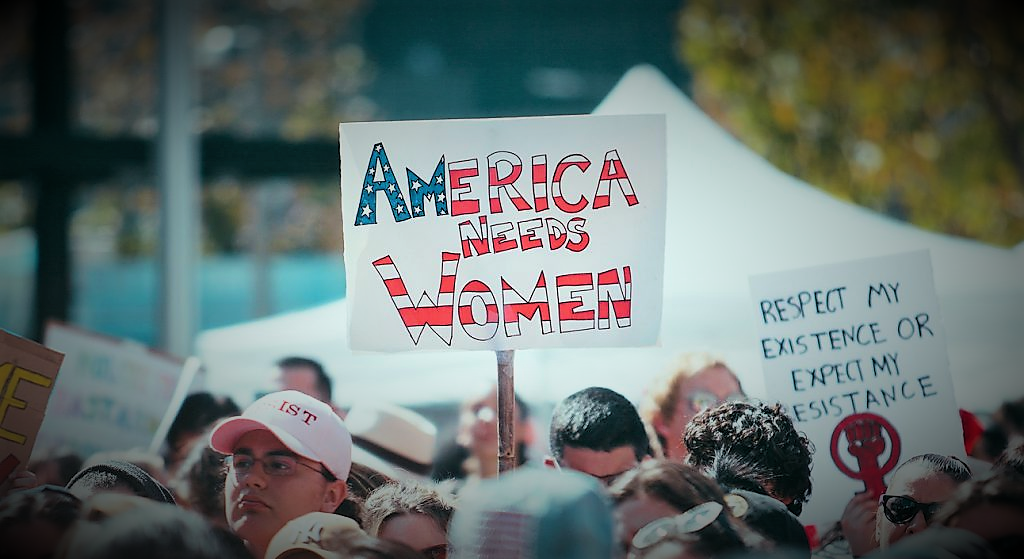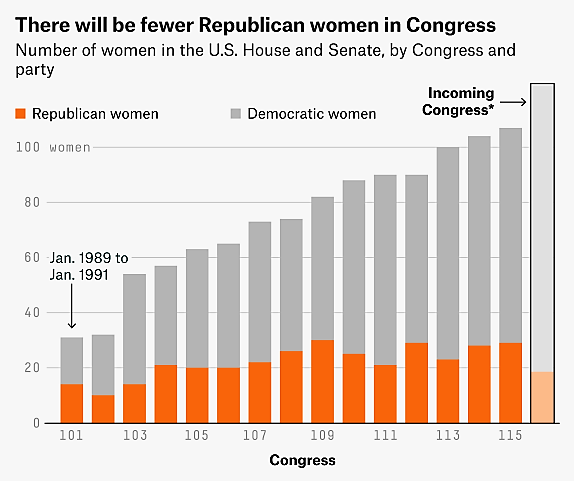As more women across the country vote for Democratic House candidates, the number of Republican women serving in Congress is dropping dramatically.
The 116th Congress will feature the largest class of female legislators ever.
But there’s a sharp divide across party lines in this historic first.
Of the 113 projected women winners, 98 are Democrats, and 15 are Republicans. (They will be joining 10 female senators who weren’t up for election this year: six Democrats and four Republicans.)
It’s a sober reminder that this standout year for women is mostly a standout year for Democratic women.
Just 13 GOP women won election this year to serve in the next Congress, down from 23.
That’s the lowest number of women in its ranks since 1994.
That drop-off came amid a national political climate that saw female voters sharply break from Republicans.
Women favored Democrats over Republicans for Congress, 59 percent to 40 percent, according to exit polls.
“I think the Republicans have to get off of defense on this issue,” Rep. Liz Cheney (R-Wyo.) said Friday in an interview with The Washington Post.
Cheney was the uncontested winner this week in the race for House Republican conference chairwoman, which puts her in charge of the party’s communications and messaging strategy.
She will become the party’s highest-profile woman in Congress, trying to rebuild and rebrand its battered image.
Assuming the No. 3 leadership post, Cheney will reach a level no woman has ever attained among House Republicans.
Cheney, who worked on Middle East policy in the State Department, brings a profile and clout among Republican women that has long been missing.
“We need more women running for office, no doubt,” Cheney said.
Rep. Elise Stefanik (R-N.Y.) could not agree more. At a forum Tuesday for candidates running for leadership posts, Stefanik stood up and motioned to a room overwhelmingly filled with white male faces.
“Take a look around,” she told the GOP lawmakers. “This is not reflective of the American public.”
Stefanik said she then asked Reps. Kevin McCarthy (R-Calif.) and Jim Jordan (R-Ohio), the minority leader candidates, what their plans were to recruit and elect more women.
“I was struck that I really didn’t get an answer,” she recalled in an interview.


